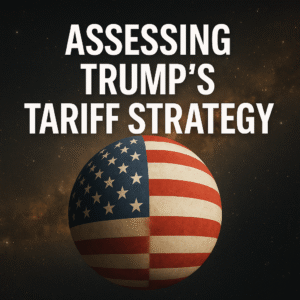Geopolitical Briefing: Pakistan – 31 August 2025
• Punjab suffers historic monsoon flooding; >1m evacuated as Ravi–Sutlej–Chenab overflow, with India’s dam releases compounding flows and data-sharing frictions.
• Kabul accuses Islamabad of drone strikes in Khost and Nangarhar; Pakistan’s envoy summoned as cross-border counter-TTP campaign risks diplomatic blowback.
• Fresh militant violence: Kohat ambush kills a policeman; three militants reported dead in follow-up sweep.
• India claims killing of long-running LoC “infiltration guide” in Gurez, signaling tighter Indian counter-infiltration along Kashmir front.
• Islamabad flags food and fiscal risks from floods; humanitarian posture shifts south as Sindh braces for peak flows.
Severe monsoon flooding has hit Pakistan’s core grain belt. Punjab authorities evacuated more than a million people as record/highest-in-decades flows surged down the Ravi, Sutlej and Chenab, forcing deliberate breaching of riverbanks to save critical infrastructure near the Qadirabad barrage. Pakistani officials say India’s release of dam water worsened inundations (India says it issued multiple alerts); this comes months after New Delhi suspended Indus Waters Treaty data exchanges, which Islamabad argues hobbles flood preparedness. Strategically, the episode stresses security independence (water control/food security), tests independence from external political control in riparian dynamics, and intersects the Kashmir lever where river management and crisis signaling now blur. Expect Islamabad to internationalize water-risk narratives while hardening domestic river defenses. (Reuters)
On 28 Aug, Afghanistan’s Taliban government alleged Pakistani drones struck targets in Khost and Nangarhar, killing three and injuring seven, and summoned Pakistan’s ambassador. Islamabad had not publicly commented at time of reporting. If accurate, these strikes mark an extension of Pakistan’s counter-TTP campaign across the border days after trilateral statements in Kabul (Pakistan–China–Afghanistan) to deepen counter-terror coordination, highlighting the limits of diplomatic frameworks. For Pakistan’s Realist priorities, degrading sanctuaries serves security independence, but risks eroding Muslim unity and complicating external autonomy by inviting retaliation, border closures, or Kabul’s diplomatic escalation—pressures that could also pull Beijing into more active mediation to protect corridor stability. (Reuters, AP News)
Militant violence persisted at home: in Kohat (KP) on 30 Aug, a police vehicle was ambushed—one officer was killed, two wounded—and three militants were later reported killed in a joint search. The incident reinforces the pattern of police-targeted attacks across KP through August, compounding force-protection demands and stretching provincial CT capacity while flood operations divert state resources. Sustained policing dominance and CT tempo are prerequisites for security independence; failure risks heavier army commitment domestically and greater reliance on foreign security backing for strategic infrastructure. (Geo.tv, Arab News)
Across the LoC, Indian outlets reported the killing (28 Aug) of “Bagu Khan,” a long-time guide allegedly central to infiltration routes in the Gurez sector. If borne out, Indian counter-infiltration is tightening, raising transaction costs for proxy violence and reshaping tactical dynamics along the Kashmir front. For Islamabad, that elevates the need to calibrate signaling around the Kashmir reunification objective while avoiding triggers that justify further Indian punitive doctrine—especially amid domestic flood response and western-river politics. (The Times of India, The Economic Times)
Economically, the finance ministry cautioned that flood damage will strain the fiscal path and disrupt food supplies even as macro stabilization had begun to take hold; humanitarian posture is shifting south as Sindh prepares for incoming flood waves. Strategic implications: emergency imports and relief could heighten short-term exposure to external conditionality (counter to independence from external political control), but also reinforce the logic of deeper Chinese capital/engineering support under CPEC for climate-resilient infrastructure—consistent with Pakistan’s long-run drift toward Beijing. (Profit by Pakistan Today, Arab News)


